The long-anticipated befitting book on former FIFA World Best Player of the Year and Ballon d’Or winner – the incumbent President of Liberia, George Manneh Oppong Weah, is here, Professor Emmanuel Clarke – a co-author of the book, has informed Completesports.com.
“I am writing to inform you of a book project that my co-author, Isaac Vah Tukpah and I completed this Fall of 2021. I am sharing chapters’ excerpts of the book titled, “George Weah, the Dream, the Legend, the Rise to Power” that captures and encapsulates the life of President George Weah from birth to his ascendency to the presidency of Liberia,” Professor Clarke, a Liberian who lives in the United
States of America said.
The authors have provided a sneak peek into the compelling Weah book which global launch will happen soon and the chapters excerpts are presented below.
Chapters Sneak Peek
Acknowledgement
For this book, there are several people and institutions that we would like to thank. Without their timeless efforts and support, it would not have been possible for us to complete this journey.
We would like to thank George Oppong Manneh Weah for the extraordinary and incredible life he has lived thus far. Without your exploits this book would not have been written. The truth is, you already wrote this book by the life you lived. All that we did was to compile it by piecing your life’s story together one chapter at a time. Thank you!
We would also like to thank a few of the Weah family, relatives, and friends who were generous with their time in sharing information with us about the life of George Weah.
We do not want to forget the following persons and institutions, William Weah Jr., D. Zeogar Wilson, Jerry Massaquoi, Franklin Duodo, Omari Jackson, G. Alvin Jones, Dru Wellington Banna, Wallace Octavius Obey, George Ggodeayee Solo, Aaron Davis, Momolu “Monk” Massaquoi, Rodney Scere,J. Emmanuel Z. Bowier, the Daily Observer Newspaper, Inquirer Newspaper, FIFA Magazine, and other print and electronic media in Liberia and worldwide for providing us with those pieces of information that helped complete this book.
Authors’ Note
The writing contained in this book is based on thorough research from various sources that include, local and international newspapers, FIFA Magazine, football magazines from around the world, hundreds of online media and video footages containing interviews with George Manneh Weah, various coaches, siblings and family members, teammates, friends, fans and supporters. Significant information also came from direct authors’ interviews with more than 30 close friends and family members of Mr. Weah.
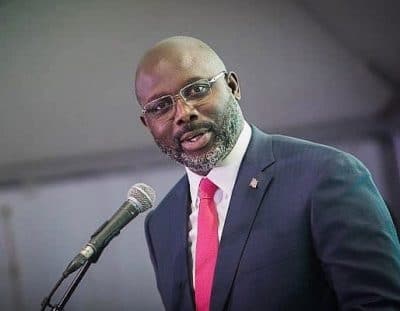
Introduction
George Oppong Manneh Weah is not angry for being raised in the ghetto of Gibraltar, in Clara Town. Weah who is the greatest living African football player; having made a name for himself on football fields around the world and for the country he holds so dearly to his heart, has lived an extraordinary life. Having conquered the football world and scoring one of the biggest goals of his life by winning the presidency of the Republic of Liberia, George Weah’s life is fulfilled. Though he is loved by millions of fans and supporters, he’s often misunderstood by some of his political critics for fitting into their perceptions. There is no doubt that he has come a long way and his story of life which is mixed with pains of poverty, hope and joy, needs to be told. Being a man of lowly birth from a humble background, Weah has carved his name forever in history and on the sands of time. He can humbly tell the world that he is a happy and accomplished man, because he had the support of so many people who helped him reach where he is today. It is because of his football achievements that he has achieved all he has up to this point in his life. Every goal he scored as a player, every football victory he celebrated by running around the full length of a football field and throwing wild hands toward the sky, every coast-to-coast run he ever made during his golden days, was intensely felt at home and around the football world— whether it was his first goal or his one hundredth goal. Football fans worldwide will speak George Oppong Manneh Weah’s name forever with love because of what he brought to the game of football and to the continent of Africa. He has forever changed the game of African politics. The political establishment on the African Continent will forever weep on his name in their secret corners for having changed the political game—especially the way modern political campaigns are run using celebrity star-power.
Chapter 1
Early Childhood and Family History
After being raped by Mr. Jimmy Pennoh, a medical practitioner in Gbe & Duru in Nimba County at age 13, and conceiving her first child at age 14, Hannah Monneh Quinwoh gave birth to George Weah in Ganta Nimba County following the birth of her second child, William Weah Jr. (Junior Boy). This birth would set William Tarpeh Weah Sr. and Hannah (Anna) on a collision course in their relationship and a life of pain and struggle for George Weah who had to live off the breast milk of other women in the Gibraltar neighborhood where he was taken to live with his grand aunty, Emma Klonjlaleh Brown.
Chapter 2
Teenage Years
As a preteen and a teenager, George
Weah never ran away from a fight with his older brother William Weah Jr. (Junior Boy) or anyone within his Gibraltar neighborhood. Now as adults, the two men still argue about little things, and do not agree on almost anything at all. George was disrespectful to many of the adults who crossed his path the wrong way. People in the neighbors secretly rejoiced the day George sustained a 3rd degree burn and was taken out of the community to seek medical treatment outside of the area—that joy soon disappeared upon his return six months later. Junior Boy was seen as the most likely person to be successful and not George Weah due to George’s hot temper and his unruly behaviors. “Why can’t you be like your brother, Junior Boy so you can be something tomorrow,” people often told him. These words pained George so much that he had to prove these critics wrong by working harder on his attitude and on his footballing skills.
Chapter 3
Liberia, the Sweet Land of Liberty
Liberia, “The Sweet Land of Liberty” being the first independent country in Africa in the early 1900s, has had many “Firsts” moments. George Oppong Manneh Weah is the first Liberian and the first and only African football player to have won the Ballon d’Or (Gold Ball) and five other prestigious football awards in a single year. Liberia was the only black founding member of both the League of Nations in 1920 and the United Nations in 1945. A Liberian woman, Angie Brooks, made history in 1970 as the first African female to be elected as president of the United Nations General Assembly. Liberia is the only country in the world to be nicknamed, “The Sweet Land of Liberty” due to black freedom and the large sugar production that once took place on the banks of the St. Paul River in the mid-1900s by the early settlers that founded the country. Liberia is the first country in Africa to have elected the first female president. Liberia is the first country in the world that has made the Guinness Book of World Record for the Most Fraudulent Presidential Election—while there were only 15,000 registered voters, President C.D.B. King received 234,000 votes in 1927. Liberia was the first country in Africa to have a coup in 1871. George Weah of Liberia is the only professional football player in the world to be elected president of a country.
Chapter 4
Raised by Grand Aunty, Growing Up Poor
From the apex of his success to his entry into Liberia’s politics, George Weah never forgot to turn his eyes toward the lower corners of the Liberian society where the downtrodden thrive in poverty and hopelessness—especially having once had a front row seat that allowed him to see and feel what it means to be poor. When he found success, he remained true to himself and to the words of wisdom from his paternal grandaunt, Emma Forkay Klonjlaleh Brown, who didn’t live to see and reap the best fruit of his labor. One profound thing that George Weah has never forgotten while still a teenager living in the slums of Clara Town was Ma Emma’s words to him—never forget where you come from, and always learn how to be able not to be a bad person even if people around you are not good.
Chapter 5
Early Education: A Rocky Start
Primary and secondary education were not easy journeys for George Weah. By age five, he could barely recite the letters of the alphabet and could not count from 1 to 50 without struggles. He also struggled to develop the Ministry of Education’s famous “SO SO” phonics and other basic reading skills. Gibraltar in the days of George Weah was like many poor slum communities around the world where many of the poorest of the poor inhabit, is a one-way and one-ticket journey for many of those who dare to enter.
Chapter 6
Introduction to Football
Family members that saw him grow often say that George started playing football the moment he learned to walk as a child. For a very long time in Liberia, football was considered a game for abandoned and less fortunate street children who came from the poorest of the poor backgrounds in the capital and around the country. Growing up in his little enclave of Gibraltar, George had heard names of famous local and international football players like Augustus Mitchell and Benedict Wisseh (Mama Musa) of Invincible Eleven, Wani Boto, Josiah N. Johnson (JNJ), and Borbor Gaye of Mighty Barrolle, Pele of Brazil, Johan Cruyff of Holland, Papa Kamara from neighboring Guinea and names of many other great players from around the world and the African Continent. It is of no dispute the reason why George Oppong Manneh Weah is the greatest living African footballer ever. Mr. George, as he was referred to in France, embodied the techniques of four of the world’s greats. He possessed the strength of Diego Maradona, the agility of King Pele, the attacking and sweeping ability of Frank Beckenbauer, and the artistic feat of Johan Cruyff who wore the famous number 14 jersey for the Dutch national team. Like Cruyff, George Oppong Weah also donned the number 14 jersey for his national team, the Lone Star and many other clubs he played for.
Chapter 7
The Dream of a Ghetto Kid
Every child has a dream no matter their social, genetic or economic predisposition. For George Weah, by the age of thirteen, he had created a mental image or dream about who he wanted to be. Aside from dreaming of being a great football player, George Weah actually wanted to join the United States Military and become a U.S. Marine. Growing up in the ghetto of Gibraltar, there were not that many choices for George Weah and so many of the children with big dreams to make. As the saying goes, “You cannot become what you do not see”. As a young person living in the ghetto, especially a male child, there is not that much one can do to change their circumstances. Often, a person is born in the ghetto, lives their life in the ghetto, grows up in the ghetto, and they may sometimes die in the ghetto. Escaping the venoms of the ghettos requires hard work and persistence.
Chapter 8
The 1979 Rice Riot and the 1980 Coup
Social agitators like Gabriel Baccus Mathews, Amos Sawyer, Dew Twan-Wleh Mayson and many others, introduced violence in Liberia that changed George Weah’s worldview forever. At the age of twelve, George Weah’s world came crumbling down when the city of Monrovia was embroiled in a torrent of violent demonstrations on Saturday April 14, 1979 by political dissenters in the likes of Baccus Matthews and his People Alliance of Liberia, PAL along with other progressive movements.
Chapter 9
Growing Up in PRC Liberia
The periods between 1980 to 1985 were dark times in Liberia for politicians and anyone who dared to openly criticize Samuel Doe or the government of the PRC. Getting adjusted to a bad situation and not making it a mind-sore while focusing on one’s passion is what George Weah did as a teenager during the People’s Redemption Council, PRC’s reign in Liberia during the 1980s. He witnessed the government’s brutality against its own citizens, and at one point, he saw neighbors turning against neighbors during an attempted coup in 1985. Clara Town and the Gibraltar Communities were not in the best of shape during the 1980s. The PRC’s coup added to the sufferings of the already struggling people in Gibraltar and various communities around the country. As a survivalist, if there was no food at home, he found food by whatever means necessary to fill his hungry belly—be it joining the older boys in the neighborhood to cook midnight food or something they referred to as, “Join before you chew/clear (JBC)”.
Chapter 10
Early Football Journey
The name “George Oppong Weah” is to football in Africa and Liberia as water is to wet. Without the game of football, George Weah would have amounted to nothing. He would have been born in Nimba County, grown up in Gibraltar, and would have probably died in Gibraltar without anyone knowing his name like many others. Liberian women threw themselves at him for free sex and marriage which he never gave them. Liking the playing style of Ghanaian football star, Charles Oppong who once played for Ashanti Kotoko and the Black Star of Ghana, George Weah named himself “Oppong”.
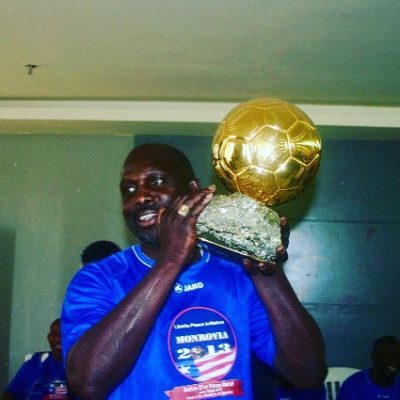
Chapter 11
The Taste of Fame
Like a hungry prizefighter, George Weah knows the taste of victory and the agony of defeat. Some pundits will say that ever since George Weah became rich and famous, he developed a “hunter-gatherer” mindset as a way of preserving his wealth and status. As always, fame has more enemies than anyone can imagine. Many friends and family would rather want a person to remain right where they are in life than rise above their circumstances. As flawed and vindictive as he is seen by many, his work ethics as a footballer was unsurpassed. Though there is not yet any past or current African player that can match the fame and achievements of George Weah, one cannot rule out the possibility that it will not happen after a thousand years.
Chapter 12
The Liberian Civil War, 1989—2003
The Liberian Civil War was a war created from mere disagreement and tension between two men, Samuel Doe and Thomas Quiwonkpa, and their failure to settle their personal differences. The sheer stupidities of Doe and Quiwonkpa that were strengthened by ethnic tension between the people of Nimba County and Grand Gedeh County, and exploited by western countries, mainly the United States of America, Britain, and France led to the death of hundreds of thousands of innocent citizens of all ethnic groupings. The civil war should not have been fought in the first place, especially when there emerged no clear winner at the end of it all. The Liberian Civil War proved that the United States does not have a permanent friendship with Liberia.
Chapter 13
Professional Football Career in Europe
Playing professional football in Europe and winning the fans’ love was not difficult for George Oppong Weah who had been preparing himself for the task his entire life. He envied the lifestyles of some of the professional players he grew up watching on Liberian television. When George finally arrived in Monaco the fall of 1988, it was not something of a pageantry—Weah had to justify his inclusion on the team and then on the squad. Upon his arrival in Monaco, he was seen by well-established players as raw, lanky, and lazy. After spending hundreds of hours in professional skills building training and thousands more in strength and skills training, the full force of the Liberian legend in waiting was unleashed on the field of Monaco and on the European Continent. George Weah gained strengths in his legs and upper extremity and was powerfully built by the age of 24. He became the wonder boy of AS Monaco. Being a twenty something years old young man with money, fame and glory along with the look that goes with them, George Weah had his field day with every female that crossed his paths.
Chapter 14
A Broken Hope and a Broken Society
As the Liberian Civil War raged and dragged on throughout the country and the decade of the 90s, George Weah or Mr. Georg as he was called to by fans in France, became a man without hope. The absurd civil war that brought voids and terrors into many Liberians’ hearts and lives was very devastating. It caught everyone by surprise—even those who initially welcomed the coming of the rebels to take out Samuel Doe and his majority Krahns dominated government. The unsophisticated and stupendous display of insanity was heartbreaking during the civil war of the 1990s. Frightened civilians stood by and watched their loved ones being herded on roadsides and summarily executed by boys as young as seven years of age.
Chapter 15
Honors and Glamor
At the height of his career, most footballers in Europe, Africa, and around the world who saw the exploits of George Weah believe that he is not one of those talents that come along once in a lifetime. Rather, King George Oppong Manneh Weah comes along once! For some people, especially Liberian and African males, a few of them would allow fame and honors to get to their heads, blind them from seeing things clearly, and make them lose the common touch with their past. On the contrary, George Manneh Weah was born humble and remained humble like a lamb, even at the height of his football glory. While he may have lost lots of friends that he considered to be dead weights and for other reasons best known to him, George Weah has somehow remained true to himself and his calling. For those strangers who have crossed paths with George often talk about his kindness and humane spirit, while some of his close friends consider him as arrogant, uneducated, petty, vindictive, reviled, thin-skinned, immature, dictatorial in nature, and greedy for power and profit.
Chapter 16
Looking Back to Where He Comes From
No matter how bad of a shape Liberia found itself in before or during the civil wars, George Manneh Weah “de deh” (a Jamaican word meaning, “to show up”) every time. He never abandoned Liberia, not once! He gave everything he ever earned on the football field back to Liberia and Liberians. There are two diverging views of George depending on who one talks to about this global icon. Many of George’s childhood friends from Gibraltar believe he is more of a giver than a taker or even a keeper. He never allowed his past impoverished life to stop him from helping those that needed him the most. But many friends who he has parted-way with say the contrary. They know him as a narcissist, attention loving, spotlight hugging, a showoff, and a man who loves to have sex with other men’s women, but hates other men chasing after his women. Some see him as a man who keeps speech (a Liberian slang) from others like a female, loves to throw hints at others, speaks in parables to those he suspects of wrongdoing, unforgiving, and harbors hatred for anyone who disagrees with him. Many of these former friends assert that George will quickly end his friendship with anyone over a girlfriend more than he would do over money. They believe that his relationship and friendship with others is purely transactional—he will drop you like a hotcake once he thinks you have nothing to offer him.
Chapter 17
Entering into Politics: The History of Congress for Democratic Change, CDC
George Manneh Weah (as he now prefers to be called) is not a typical politician. Unlike the many politicians in Liberia and elsewhere in the world who often glamour for great wealth, fame, and other personal rewards and perquisites once elected to public office, George Weah is an embodiment of service to country and humanity. He sees his entry into politics as a direct response to serving a Liberian population that had been badly abused and scared by more than a decade of civil strife and well over a century of one-party rule. Just as the name George Weah once razzle-dazzled millions of fans all over the football world, the name George Manneh Weah is today the brand upon which the Congress for Democratic (CDC) is built. The CDC minus George Manneh Weah is bound to trigger hundreds of thousands of supporters walking away and turning their backs on the movement. In short, without the Weah’s brand, the CDC may one day cease to exist as a political party. The CDC was an idea born out of frustration and resentment of an established political class that was seen to have been misleading the masses in and out of Liberia for well over three decades. This idea was fueled by some farsighted and passionate Liberians that sought for an alternative to Liberia’s kleptocratic political system (a system of government or state in which those in power exploit national resources and steal, or a government ruled by a thief or group of thieves) that often shortchanges and shuts the ordinary Liberian out of any political discussion that determines the future of the country.
Chapter 18
The 2005 and 2011 Presidential and General Elections
The 2005 election had many firsts for so many reasons. It was Liberia’s real free and fair first postwar election after more than 14 years of ruthless civil wars that saw the death of thousands of innocent men, women, and children. This election would eventually put the people of Liberia on the map of the world for making history across Africa because it was the first ever election that shattered the glass ceiling of an established African political male hegemony and brought in the first-ever female to a presidential palace in an African country. As the proverbial leader of a populous political movement with only a career experience from the football field, the odds were lined up against the star. For a political neophyte with hundreds of jeering and rowdy supporters mainly in Monrovia in 2005, a second place in a highly contested election was a signal to his pundits that a real force had arrived on the political scene in Liberia. On the other hand, many of George Manneh Weah’s hero-worshipping supporters would not accept anything short of a win for their candidate whom they sometimes referred to as the “rejected cornerstone that the builder refused.” In Liberia and many African countries, people vote their fears and not their hopes for a better future. The 1997 election was an election in which people voted fears and anxieties for someone more atrocious.
Chapter 19
Lessons Learned from Elections and Weah’s Preparation
Liberians are a very peculiar group of people. Many of them are fickle, wicked, liars, and wind- driven. Most Liberians will never keep their promises to a person or hold loyalty to someone other than for the better securing of their daily bread. In Liberia, people will flatter a person with empty praises that they do not truly mean. The virtue in most respects is to gain from the person more than they can give back to the person or their community. By the same token, if a person gains the trust and respect of the poorest of the poor in Liberia as George Manneh Weah had done, that person will forever be in their hearts. No matter what that person does to them or what others tell them of the one they trust, will never be believed by them. If the poorest Liberians give a person their loyalty, many of them will fight for that person, talk for that person, or give their lives for that person, even in defeat or at the edge of their personal destruction. As a man who knows the taste of victory and the agony of defeat, George Manneh Weah has learned a lot about Liberians on his road to become this enigmatic legendary leader of the Congress for Democratic Change, CDC. To a certain degree, he learned that most Liberians cannot be trusted because they are capricious, if not deceitful—many of them will often not keep their words and promises to their fellow Liberians.
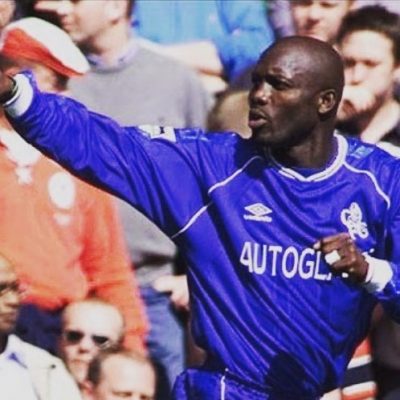
Chapter 20
Graduating From University with a BSc. and MPA
For most people, education is a journey that leads a person on a road to success and enlightenment. The road to pursuing an education is an unwinding one. Sometimes it leads the pursuer in paths unknown to the human endeavors—narrow passages, rocky hills and mountains, through the deepest valleys, through muddy paths and in garbage ladened streets, and for George Weah, up the hill on Front Street in the heart of Central Monrovia. As a role model to millions of impoverished youths in the tiny West African nation and in many other places around the world, Mr. Weah obtaining a college degree from an American university meant a lot to him, to his family, and to so many of his fans and supporters worldwide. Though it was a degree that was given to him, but it was a degree he’d earned for the millions of boys and girls who share his story and millions more that look up to him for direction in guiding their own dreams. His degree symbolized hope for many poor young Liberians and millions more across the world. Like Mr. Weah, many of these young men and women from the lowest fringes of society have the firm belief that with education anything is possible.
Chapter 21
Weah’s Role in Liberian Politics and the Rebranding of CDC
How could George Manneh Weah revamped and rebranded a highly polarized political organization like the Congress for Democratic Change (CDC), which has gained the reputation of being populated with various political dissidents and many types of social agitators? When Mr. Weah decided to take centerstage after two failed elections, and after obtaining a highly needed education, the answer was obvious— he needed the right attitude and the right people around him to become a constant pain in the side of the ruling party. This strategy worked to the advantage of George Weah and the CDC that many citizens were now referring to as “Children Destroying the Country, CDC”. After losing two presidential elections over the past seven years in two election cycles, most political observers thought that the CDC would have lost its saltiness and disappeared into the dustbowl of political oblivion. But the party kept making itself relevant by engaging the governing Unity Party of Ellen Johnson-Sirleaf. While other political parties went silenced after the 2005 and 2011 elections, few well-known CDC’s political agitators and social advocates like Moses Acarous Gray, George Solo, Isaac Vah Tukpah, Mulbah Morlu, and Isaac Saye Zawolo, a one-time instructor at the University of Liberia, along with many others from the party’s ranks, actively engaged the ruling UP on many national governance issues.
Chapter 22
Liberia is a Beautiful Country with Too Much Potential
As hurtful as this statement may sound to some Liberians, most Liberian observers believe that Liberia is a country where anything is possible and everything is acceptable. In its current state, it has become a country that needs a leader who will nurture its growth and development, and also teach its people how to walk again the second time. A country with a considerable potential, Liberia is a land that holds so much promise for its children and those who enter her gates. Her warm Mona Lisa-like welcoming smile puts everyone at ease. The beautiful smiles that are plastered across the faces of her citizens serve as a beacon of hope for so many persecuted people across the world. Liberia is a beautiful country that is rich in natural resources and blessed with a youthful population—some of whom could one day turn their country’s failing destiny in a positive new direction. As an old nation whose strength lies within its youthful population, Liberia is a success to be had.
Chapter 23
Changing Liberia to What It Should Be
Liberia, having been assaulted and plundered by Samuel Doe, Overrun and destroyed by Charles Taylor, used and abused by Ellen Johnson-Sirleaf, and has now fallen into the arms of George Manneh Weah like a new lover filled with venoms of the past, should never remain what it is. It should be transformed into what it ought to be. As a nation, Liberia has never had the chance to live out its full potential due to how it had been managed by past leaders. George Weah and the next generation of Liberian leaders should never allow Liberia to remain what it was when they assumed state power. Rather, they should build and make it into what it ought to be as the oldest independent country on the African Continent. Being the oldest free nation and free of European colonialism and European exploitations, Liberia has remained underdeveloped and mired by corrupt leaders that have badly managed it. No matter how one frames the current situation in Liberia, be it good or bad, George Manneh Weah and future political leaders should remake Liberia into what it should be for generations to come. Political ‘Fat Cats and Vultures’ should be destroyed in whatever form they exist. For Liberia to become what it ought to be, economic equality should be championed, social equality for women should become the law, young boys and girls should be rescued from the streets and those that are exploiting them should be sought for and prosecuted to the fullest.
Chapter 24
George Weah’s Rise to Power
This six-foot two-inch gentle, amazing football legend called George Oppong Forky Klon Jlaleh Gbakugbeh Tarpeh Tanyonoh Manneh Weah, who is believed to be an adversary to cruelty and a lover of justice with eyes that have never forgotten how to cry; and a heart that was once filled with loving disciplines from a God-fearing grand aunty, Emma Brown, is a very happy soul today. Having scored some of the most brilliant goals during his football career, he has finally scored the most important goal of his political career—winning the presidency of Liberia. Still, many of his critics and a few political pundits think that the voters may have emotionally made the biggest mistake of their lives by electing George Manneh Weah as president for a country that is still trying to heal itself of a devastating and brutal civil war, bounce back from the economic devastation of the Ebola Virus Disease, and recover from the bad governance of the previous administration. But for George Weah and his CDC political movement, their rise to power had been a long time coming. After the December 28 announcement of the result of the runoff election, the city of Monrovia erupted with joy and was set ablaze in a frenzy of jubilation by Weah’s supporters. The announcement seemed to many of them like they were dreaming because it was what they had been fighting for. There were thousands and thousands of supporters of George Weah dancing, drinking, crying, singing and shouting battle cries of all kinds in a hysterical cacophony of youthful exuberance to celebrate their hero’s victory. For many of them, this was the moment they had all been waiting for the past 12 years.
About Authors
Emmanuel Clarke
Professor Emmanuel Clarke is the author of more than 10 books. He has taught at Mercer County College in New Jersey, Burton County College in New Jersey, United Methodist University in Liberia, Forsyth Technical College in North Carolina. His books include, Computer Concepts for Liberian Schools, Jr. & Sr. High Edition. Growing Up With Technology, Computer Concepts for Liberian Schools, Sr. High Lab Manual, Computer Concepts for Liberian Schools, Jr. High Lab Manual, Elementary Computer Lab Manual, Golden Minds, One Language Arts for Liberian Schools, Monrovia The City of Lovers, Liars, and Thieves, In Tears and Blood, The Fraternal Deception, Management Information for Liberian Colleges and University, Project Management for a Modern Liberia, etc. Prof. Clarke is an inventor and CEO of Clarke Publishing Group, an AI-powered EMR and Publishing company headquartered in North Carolina.
Isaac Vah Tukpah Jr.
Isaac Vah Tukpah, Jr., also known as I. Vah. is married to Natalie Tukpah. He has four children: Yanita, Ivah, Peyton, & Nailah. Isaac was born in Cestos City, Rivercess County (formerly Rivercess Territory) to the union of Isaac Vah Tukpah, Sr. of Kpelle, Bassa, and Gio descent and Annie Dunn Tukpah of Americo-Liberian, Bassa, Vai, and Gola descent. He was raised in Monrovia in the Soniewehn and Snapper Hill/Rock Town areas. He attended elementary school at Cathedral School with a one-year stint at Area C school in Yekepa, Nimba County. He attended junior high school at Carroll High School in Grassfield Nimba County. He attended the College of West Africa (CWA) for high school from whence he matriculated to Cuttington University (formerly Cuttington University College). He holds a B.Sc. in Economics from Cuttington University, magnum cum laude, and an M.B.A. from the University of Maryland Smith School of Business in the United States, magnum cum laude. He also completed all academic requirements for a degree in Monetary & Industrial Economics at Rutgers University in New Brunswick, NJ but did not complete his thesis. He holds a current project management certification from the Project Management Institute (PMI).


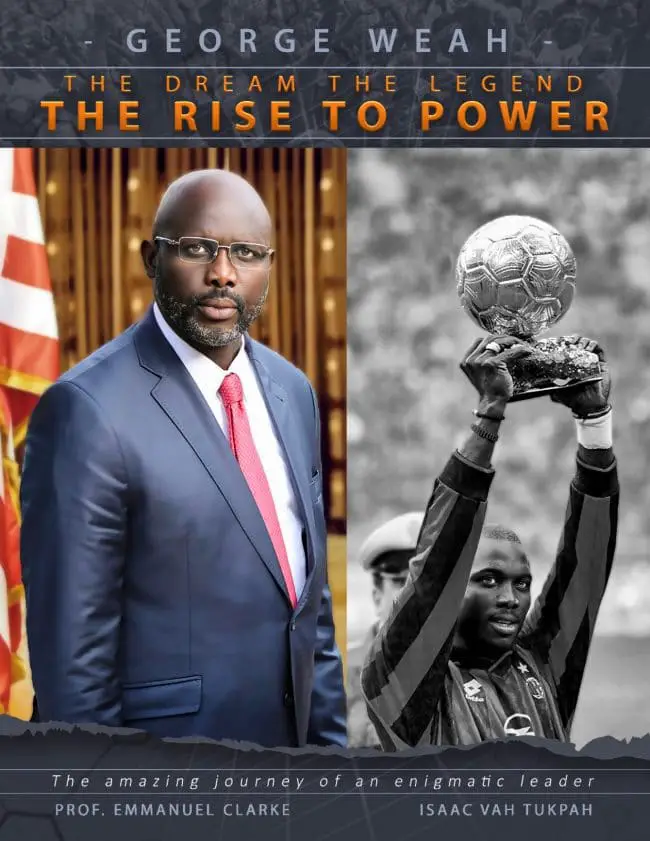
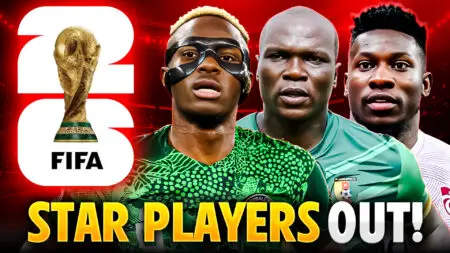
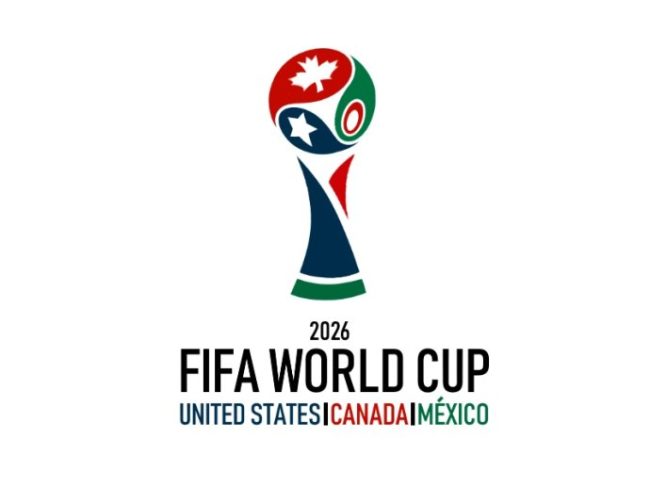
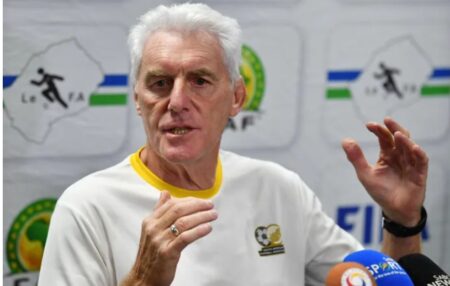
1 Comment
See person life